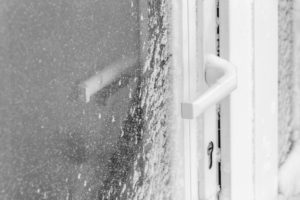What a Freeze Can Do to Your Basement
Reliable Basement is now part of ULB-DRY Waterproofing . You are being redirected to similar content on ULB-DRY Waterproofing’s website.
If you are not redirected within 5 seconds, please click here.

Living in Illinois, you know that winter lows can be intense. Because the temperature often plunges below freezing, it’s vital to have a deep foundation to keep your home stable. Even with a deep foundation, the cycle of freezing and thawing can take its toll. They may not be the first parts of your house you consider when it freezes, but it’s important to pay attention to your basement and foundation. Cold can have a major impact on those parts of your home, possibly even compromising their structural integrity.
- The water in your soil causes trouble when it freezes. Just like ice in an ice cube tray expands as it freezes, the moisture in your soil expands. That expansion takes the soil with it, exerting pressure on your foundation walls. The expansion and contraction of freezing and thawing can shift your foundation. This movement of the foundation due to the expansion of the soil is called frost heave.
- Even a new home can be susceptible to frost heave. Even if it doesn’t dramatically shift the foundation, soil expansion can damage your home. The pressure that’s localized on just one part of the foundation can cause cracks to form in the walls. These cracks slowly affect a larger area of your home, and they also let water into your basement.
- Concrete can also become saturated. Concrete is porous, and when water seeps into it and freezes, the concrete expands and makes existing weaknesses a bigger problem. This problem primarily affects older homes, but all concrete is vulnerable to damage from freezing and thawing.
- Freezing also affects your sump pump. If you use a sump pump, you need to take care to keep the discharge line from freezing in the winter. If this line freezes, the sump pump will no longer be able to push excess water from the home; that water will be forced back inside, causing your basement to flood. To prevent a frozen discharge line, position it at a downward angle that doesn’t allow water to collect inside it.
- After a freeze, melting snow can be an issue. It can seep into the soil around your foundation, and if there’s enough water it will make its way into your basement through cracks, windows, doors, and any other opening it can find. If you notice peeling paint, musty odors, and dampness, it means water is leaking into your home.
If your basement needs waterproofing, Reliable Basement Services can help. A family-owned and operated company, we’ve served the greater Chicagoland area for more than ten years. We offer a full spectrum of basement services, charging reasonable rates for work that includes crack repairs, sump pump systems, basement waterproofing, basement windows, and floor repair. Our consistently high standards have made us an award-winning Chicago basement waterproofing contractor and earned us thousands of satisfied customers all over Chicago. For more information, call (630) 318-4888 or visit our website for a free quote.
